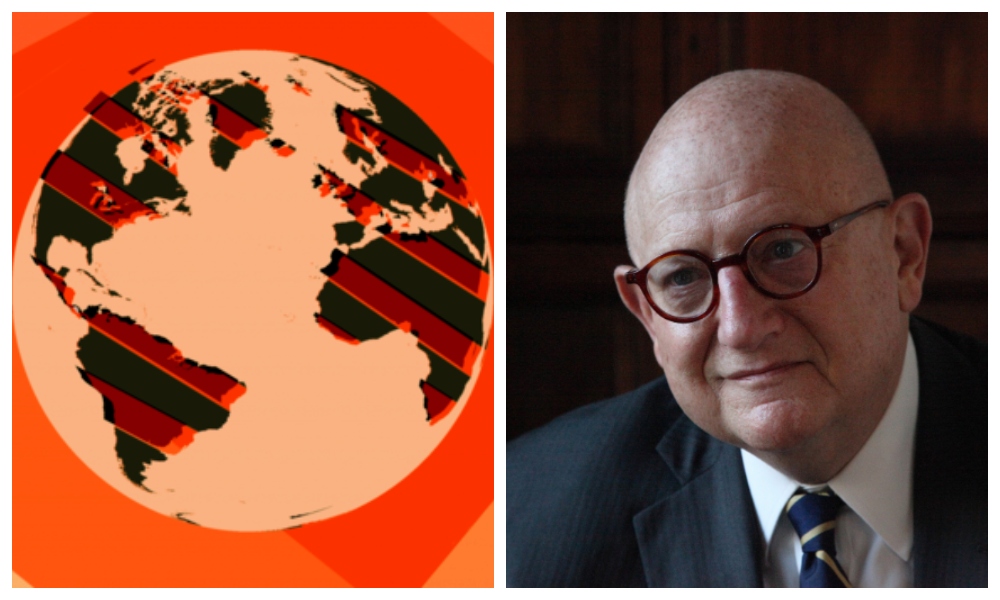Many of the anti-Semitic occurrences in February read like the anti-Semitic incidents of January. There were frequents cases of vandalism and anti-Semitic graffiti—particularly swastika graffiti Numerous Jewish cemeteries were vandalized and soccer matches were marred by anti-Semitic behavior.
Unique to February were carnivals in Belgium, Spain and Brazil where anti-Semitic caricatures of Jews and Nazi symbols were employed. And, of course, when the world is obsessed with some kind of horrible news—in February 2020 the coronavirus—conspiracy theories abound about how the Jews are behind the world’s latest trouble.
However, another manifestation of anti-Semitism deserved particular attention this past month—the denial or minimization by politicians of the existence of any anti-Semitism in their country. This is not a new phenomenon but it does seem to be increasing in recent months.
When I worked at the State Department’s Office of the Special Envoy to Monitor and Combat Anti-Semitism we were frequently visited by representatives from foreign governments to talk about human rights issues. Not infrequently, we were apprised by our visitors that their countries had no anti-Semitism. Given the ubiquitousness of anti-Semitism (even in countries with no Jews) this type of claim invariably raised our office’s suspicion. What kind of Jew-hatred were our guests eager to cover-up? This month there must have been a great deal.
The least objectionable of these recent incidents of denial came from Ukrainian President, Volodymyr Zelensky. Zelensky in an interview noted the absence of anti-Semitism in Ukraine and pointed to the low levels of security (compared to elsewhere around the world) in Kiev synagogues and the fact that his Jewish heritage played no role in last year’s presidential elections. Zelinsky’s claim comes in a period when Jewish graves and monuments in Ukraine have been vandalized and streets continue to be named for Ukrainian nationalists from the 1940s who were responsible for the widespread killing of Jews.
In Belgium this past month a carnival parade in the city of Aalst featured hook-nosed religious Jews and characterizations of Hasidic Jews as insects. The mayor of Aalst, Christoph D’Haes insisted he saw no sign whatsoever of anti-Semitism in these depictions.
Since Jeremy Corbyn’s selection as the head of the British Labour party in 2015, critics from across the political spectrum have warned of increasing anti-Semitism among the party’s members, activists and elected officials. Meanwhile, hard-core Corbyn supporters have denied that there are any anti-Semitic tendencies in the party and ask, “how can the party of anti-racism possibly be anti-Semitic?” They have claimed that Corbyn and others in the party have merely directed legitimate criticism at the state of Israel. Such claims are difficult to swallow when they are used to legitimize Labour members who rail against the Rothschild family for “practicing usury” and “taking over the world.” This past month a radio broadcast by a prominent, former Labour Member of Parliament, George Galloway, resulted in a £75,000 fine for the radio station. The fine was levied because Galloway declared that the charges against Labour of anti-Semitism were “bogus” and just “a giant Gobbellian lie.”
Under the right-wing Orban-led governments in Hungary diplomats and politicians have cleaved to a particular talking point when foreign critics decry government policies that foster anti-Semitism. At the end of 2019 the Hungarian diplomat Ferenc Kumin, who recently served as Counsel General in New York, posted on Facebook about how shocked he was to talk to his Orthodox friends in Brooklyn about the spread of violent anti-Semitism in the United States. He then proceeded to castigate “American public actors” who talk about anti-Semitism and instructed them to turn to their own country’s deepening anti-Semitism and don’t worry about the Hungarian community where Jews “live in the most security.” Just this month, one of Orban’s party’s representatives to the European Parliament declared the Hungarian Jews are safe while Western Europe faces rising anti-Semitism. This at a time when the Orban government has changed the national curriculum to include two mediocre but anti-Semitic writers from the World War II era and dropped Hungary’s only Nobel literature prize-winner Holocaust survivor Imre Kertesz. It also comes at a time when the government continues to support a Holocaust distortionist as the developer of its new Holocaust museum. I don’t remember any Western European governments who has taken similar steps.
Finally, in February Iranian Foreign Minister, Mohammad Javad Zarif, announced that the Middle East has no record of anti-Semitism, declaring that “[n]o one can portray…Iranians…as anti-Semites.” Within days of the Foreign Minister’s announcement, an Iranian student group, the Basij Group, and an NGO called the Alliance for Rights of All Minorities threatened to destroy the Jewish historical/cultural site in the north of Iran, the Tomb of Esther and Mordechai, and replace it with a Palestinian consulate in revenge for the Trump Administration’s peace plan.

